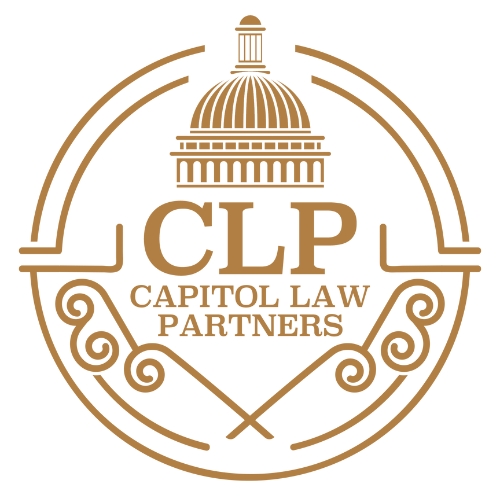· Intellectual Property Law · 2 min read
What Is Intellectual Property? | Copyrights | Trademarks | Patents
This article comprehensively addresses the importance of intellectual property for businesses and the methods for protecting it. It explains the four main types of intellectual property: copyrights, trademarks, trade secrets, and patents, detailing the definition, protection period, and registration process for each. The article emphasizes the impact of intellectual property rights on business value, highlighting the critical role of proper registration and legal protection in brand security and competitive advantage.

Intellectual Property Law
What Is Intellectual Property?
Intellectual property is an intangible asset.
It is a thing, a property, like any other property.
When we talk about the intellectual property of a business, this is an asset of the business just like its real estate, equipment, or other assets it may own.
Intellectual property is one of those assets.
Types of Intellectual Property
There are four different types of intellectual property: copyrights, trademarks, trade secrets, and patents.
1. Copyright
Copyright is a form of protection provided to the authors or creators of any original work.
In other words, copyrights protect creative works, works of art, literary works, and similar things.
Generally, a copyright is valid for quite a long period.
In most cases, copyright remains valid throughout the author’s lifetime and for 70 years after the author’s death.
After this person dies, the copyright remains valid for 70 years following their death.
When we talk about copyrights, there are common law copyrights and federally registered copyrights.
A work is protected by copyright under common law as soon as it is created.
That means, without doing anything else — when you paint a painting, make a movie, or record a song — as soon as these works are created, they are protected under common law copyright.
This means that no one else has the right to copy that work.
Copyright means the right to copy the work.
Copying, distributing, modifying, or using it in other ways — these rights belong to the copyright holder.
However, registering the copyright with the U.S. Copyright Office provides another level of protection for your copyrighted work.
It also gives you additional rights to compensation in case of copyright infringement.
The main points to know about copyrights:
-Copyrights apply to original works, such as creative or artistic works.
-Copyrights remain valid for the lifetime of the creator and for 70 years after their death.
2. Trademarks
The second type of intellectual property right is trademarks.
A trademark is any word, symbol, design, device, or any combination of these used to identify the source of goods or services.
When we think of trademarks, business names or logos usually come to mind — things we immediately recognize as the source of a product or service.
These are trademarks.
A trademark can be any element used to indicate the source of goods or services (like a logo) and even designs (such as trade dress).
Trademarks can also include sounds or scents.
Anything that indicates the source of goods or services is a trademark.
Having trademark rights prevents competitors from using the same or similar trademarks for the same or similar goods or services.
A common misconception is that a trademark gives you ownership of a word or design in general.
This is only partly true — your rights apply specifically to how you use the trademark for your goods or services.
If someone uses a similar trademark for unrelated products or services, your rights may not cover that use.
Trademarks are specific to use — they do not grant general ownership of a word or design.
Trademarks can potentially last forever.
After registration, renewals are made approximately every 10 years, but as long as use continues and renewals are filed, a trademark can remain valid indefinitely.
Like copyrights, trademark rights take effect under common law as soon as you begin using them in commerce.
Common law rights generally cover your geographic area and specific goods or services.
However, they are not as strong as federal registration with the U.S. Patent and Trademark Office (USPTO).
Trademarks cover words, symbols, and designs used to identify the source of a product or service.
Sometimes there may be overlap between copyrights and trademarks — for example, a logo can be both copyrighted and trademarked — but fundamentally, they protect different things.
3. Trade Secrets
The third type of intellectual property is trade secrets.
This may sound similar to trademarks, but it is quite different.
A trade secret is any business information that provides economic value but is not publicly known and is kept secret.
Trade secrets often include internal processes, systems, customer lists, formulas, or methods.
Any information that has economic value and that you would not want others to know is likely a trade secret.
The key to a trade secret is that it must remain secret.
Information that everyone knows or that can easily be found online is not a trade secret.
For example, if your prices are listed on your website, they are not trade secrets.
However, if you have a private algorithm for determining pricing and you protect that information, it may qualify as a trade secret.
Trade secrets can last forever, as long as they remain confidential.
If a trade secret is made public, it is no longer protected.
Unlike copyrights, trademarks, or patents, trade secrets cannot be registered.
In fact, registering them would defeat their purpose.
To protect trade secrets, limit access to them and use confidentiality agreements or NDAs to maintain secrecy.
4. Patents
Finally, the last type of intellectual property is patents.
I am not a patent attorney — I don’t deal with patents and know little about patent law.
But the basic idea is this: a patent is a property right granted by the U.S. Patent and Trademark Office (USPTO).
There are no common law patent rights like there are with copyrights or trademarks.
A patent can be obtained by anyone who invents or discovers a new and useful process, machine, or manufacture — essentially, an invention or new development.
There are two main types: utility patents (covering how something works) and design patents (covering how something looks).
A patent gives its owner the exclusive right to make, use, sell, license, or distribute that invention.
Regarding registration:
-Copyrights are registered with the U.S. Copyright Office.
-Trademarks and patents are registered with the USPTO.
*There is a myth about mailing something to yourself for copyright protection — this is false.
There is no law stating that mailing something to yourself provides copyright protection.
You can also register trademarks at the state level, but these only apply within that state and do not offer much more than common law rights.
Federal registration is much more valuable.
*Trade secrets, on the other hand, are not registered anywhere you protect them by keeping them confidential.
Why Is Intellectual Property Important?
Intellectual property is an asset that forms part of your business’s value.
If you are seeking a loan, looking for investors, or planning to sell your business, your intellectual property contributes to that value.
Failing to protect your intellectual property (for example, not registering your trademarks or not enforcing your rights) reduces that value.
Intellectual property also plays a major role in licensing — for example, when you license courses or trainings, you are typically licensing your intellectual property.
Registering and protecting your intellectual property strengthens your business’s value and security.
Always consult an attorney to ensure your copyrights, trademarks, patents, and trade secrets are properly protected and maintained.
Capitol Law Partners provides comprehensive consulting services in trademark law and intellectual property. Our team provides strategic guidance to businesses in the registration, protection, and enforcement of trademarks. Strongly protecting your trademark rights is not only a legal safeguard but also an investment that increases the long-term value of your brand. As Capitol Law Partners, we offer professional support at every stage, from application processes with the United States Patent and Trademark Office (USPTO) to international trademark protection.
Whatsapp +1 (202) 440-2272
Phone +1 (202) 440-2272




